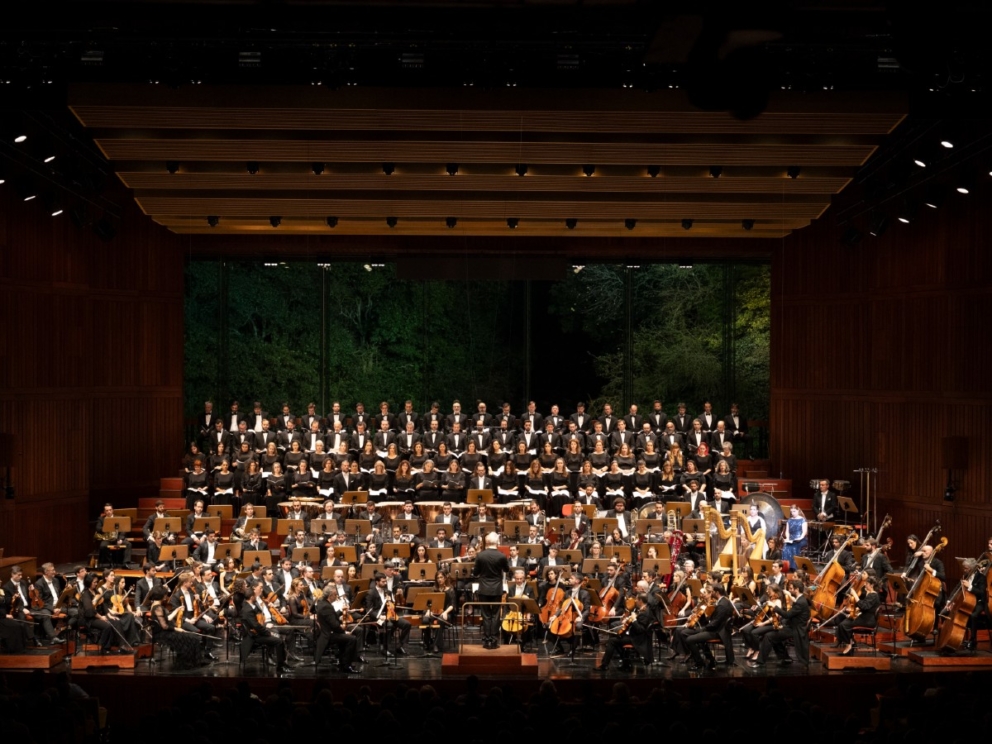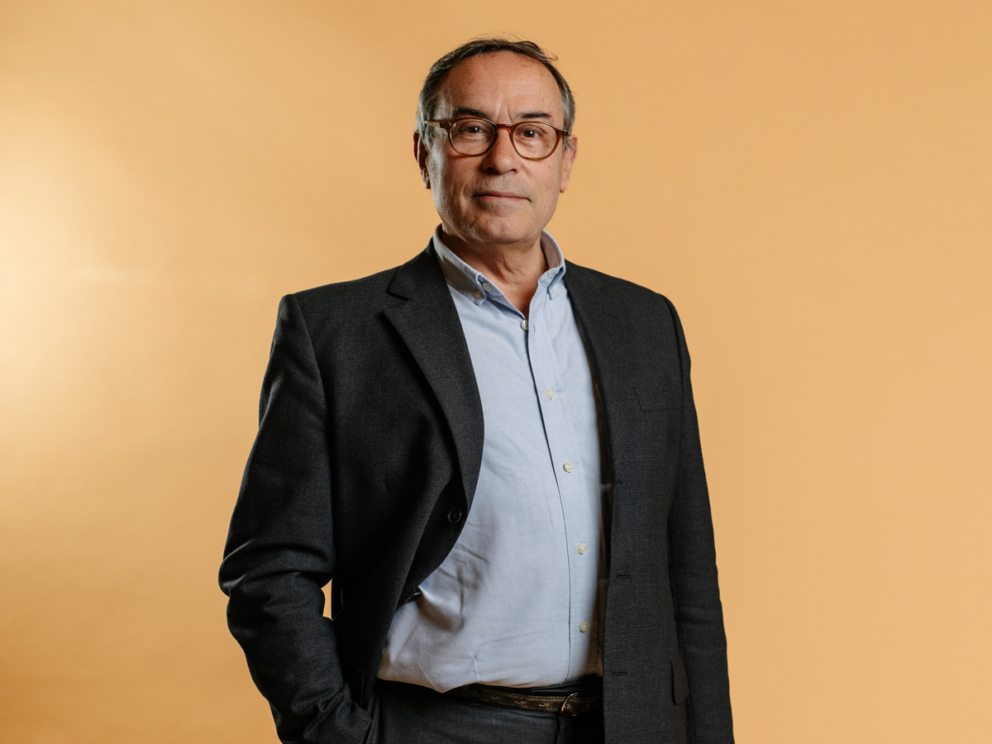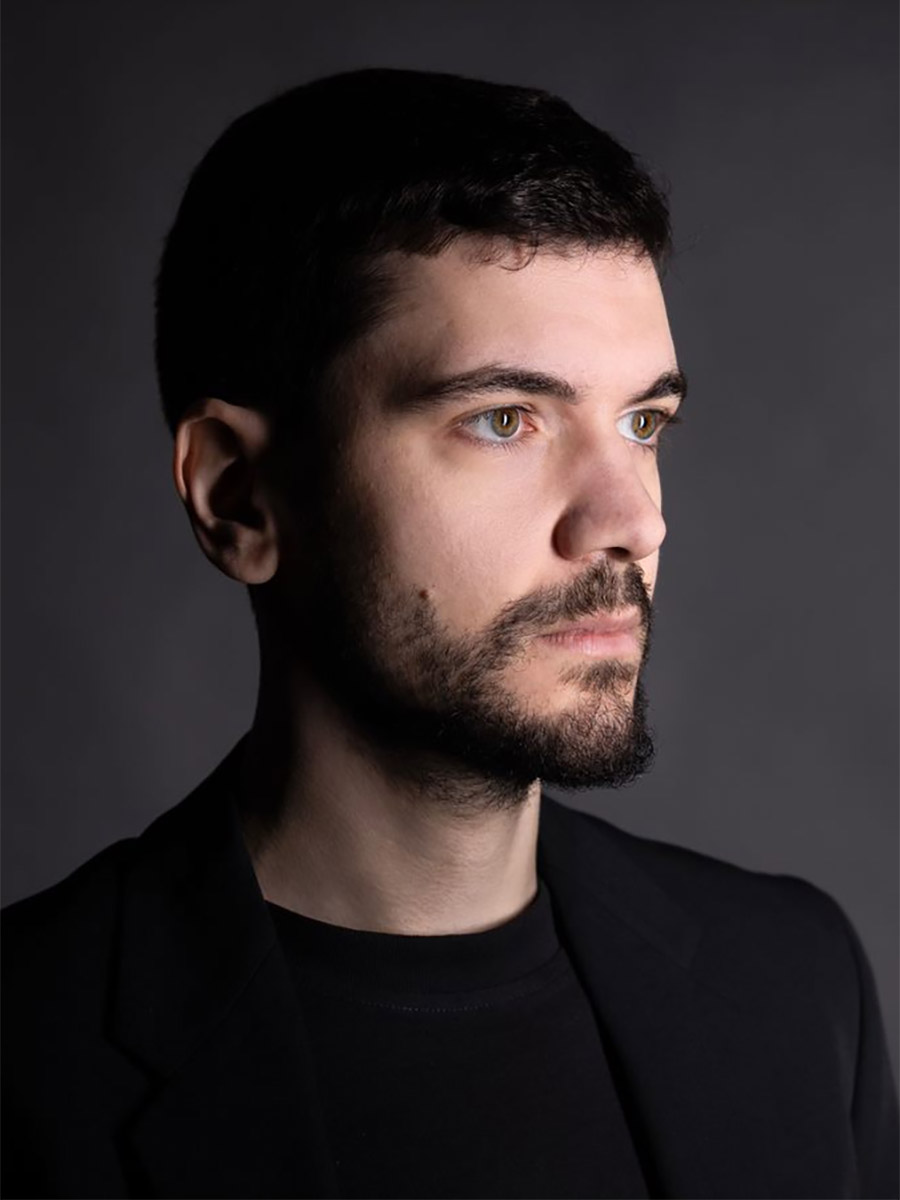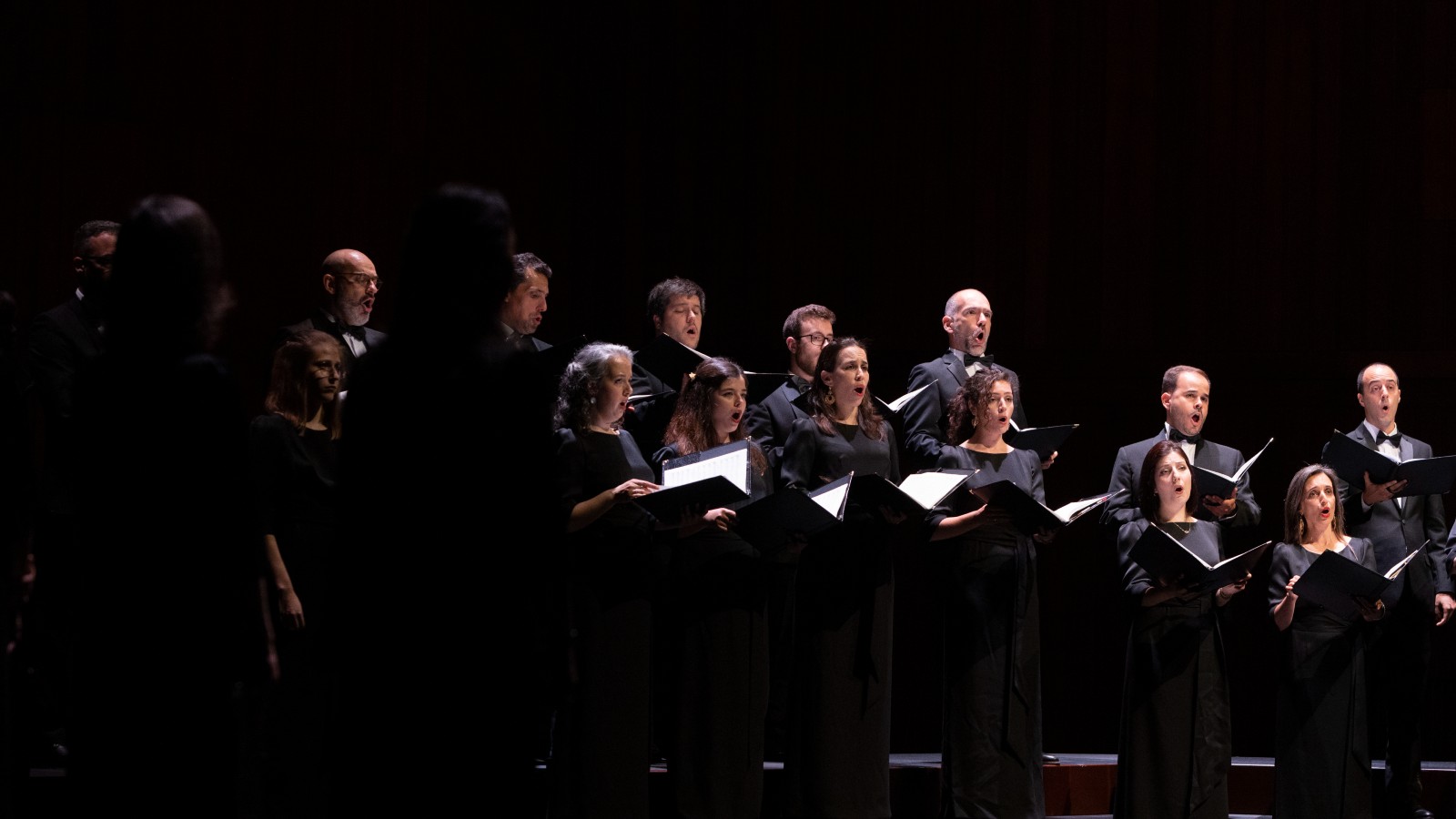Gulbenkian Choir a cappella
Heroic Songs
Event Slider
Date
- / Cancelled / Sold out
Location
Grand Auditorium Calouste Gulbenkian FoundationIn-person ticket collection is available two hours prior to the event (available seats: 300).
- Conductor
- Inês Mesquita Piano
- Accordion
-

Gulbenkian Choir
Coro Gulbenkian was founded in 1964 by the Calouste Gulbenkian Foundation as a full symphonic body of around 100 singers. The choir joins the Orquestra Gulbenkian and other orchestras to perform Classical, Romantic and Contemporary choral-symphonic repertoire, but can also perform a cappella. It has performed – and often premiered – many 20th century works by Portuguese and international composers.
Coro Gulbenkian has been invited to collaborate with major international orchestras, under the direction of conductors such as Claudio Abbado, Colin Davis, John Nelson, Emmanuel Krivine, Esa-Pekka Salonen, Frans Brüggen, Franz Welser-Möst, Gerd Albrecht, Michael Gielen, Michael Tilson Thomas, Rafael Frübeck de Burgos, René Jacobs and Leonard Slatkin, among others.
Besides its regular season of concerts in Lisbon and frequent national tours, Coro Gulbenkian has repeatedly toured Argentina, Belgium, Brazil, Canada, Denmark, France, Germany, Hungary, India, Iraq, Israel, Italy, Japan, Macao, Malta, Monaco, Netherlands, Spain, the United Kingdom, the United States of America and Uruguay.
Coro Gulbenkian has recorded extensively for Philips, Deutsche Grammophon, Erato, Cascavelle, Musifrance, as well as FNAC-Music, performing a wide range of repertoire, from Early-Renaissance polyphony to Xenakis. Several of these albums received international awards.
Michel Corboz was the Principal Conductor between 1969 and 2019. Jorge Matta and Inês Tavares Lopes are currently the Associate and Assistant conductors, respectively.
-

Jorge Matta
Conductor
Jorge Matta holds a PhD in Historical Musicology from the Universidade Nova de Lisboa, where he taught in the Department of Musical Sciences.
An investigator, publisher and performer, he has been responsible for three hundred modern premieres of vocal and instrumental works by Portuguese composers and has given world premieres of works by Constance Capdeville, Jorge Peixinho, Fernando Lopes-Graça, Filipe Pires and Miguel Azguime. As an author and performer, he has also recorded series of TV programs such as "Música de Corte no Palácio da Ajuda" (1986), "Tempos da Música" (1988) and "Percursos da Música Portuguesa" (2008).
Jorge Matta participated in major music festivals in Portugal and abroad, and has conducted the Orquestra Gulbenkian, Orquestra Metropolitana de Lisboa, Orquestra Sinfónica da RDP (Portuguese radio), Orquestra de Câmara de Macau, Orquestra de Câmara de Lisboa, Orquestra do Norte, Filarmonica das Beiras, Collegium Instrumentale de Bruges, Bavarian Radio Choir and the Boston Arts Academy Choirs.
Recent International engagements include the preparation of Coro Gulbenkian for five performances of Richard Strauss' Elektra, conducted by Esa-Pekka Salonen and staged by the late Patrice Chéreau at the Festival de Aix-en-Provence, as well for concerts in Santiago de Compostela, Spain, with Real Orquesta Filarmónica de Galicia, and in Paris with Orquestra Gulbenkian.
His discography includes recordings with Coro Gulbenkian ("Canções Corais”, Filipe Pires; Libera me, Constança Capdeville; Opera Omnia, Diogo Dias Melgas; “Música Sacra”, Joaquim Casimiro Júnior; “Vilancicos negros, de Santa Cruz de Coimbra”; “Música Sacra, Pero de Gamboa e Lourenço Ribeiro”; “Fernando Lopes-Graça – Música Coral”; “Canções de Natal Portuguesas”), as well as with the ensemble Cantus Firmus and Orquestra de Câmara de Lisboa.
In 2000-2001 he was director of the Portuguese national opera theatre, Teatro Nacional de São Carlos. Since 2001, he is the president of the Comission for Evaluation of Regional Orchestras.
-

João Barradas
Accordion
João Barradas stands out as one of the most creative musicians on the European accordion scene, moving simultaneously between classical and improvised music. He gave the first-ever accordion recitals in concert halls such as the Wiener Konzerthaus, the Calouste Gulbenkian Foundation and the Festival d'Aix-en-Provence and performs as a soloist with the London Philharmonic Orchestra, the Tonhalle-Orchester Zurich, the Symphoniker Hamburg and the Cologne Chamber Orchestra, under the direction of the most prestigious conductors such as Edward Gardner, Alondra de la Parra, Sylvain Cambreling and Christoph Poppen.
In the world of Jazz, he has increased the presence of his instrument by collaborating with some of the most important contemporary improvisers, such as: Mark Turner, Peter Evans, Aka Moon, Greg Osby, David Binney, Gil Goldstein and even in larger groups such as the Brussels Jazz Orchestra.
He was nominated ECHO Rising Star by the European Concert Hall Organization in 2019. This current season he will be the Artist in Residence at Casa da Música, Porto and was awarded the Sir Jeffrey Tate Award in Germany.
Heroic Songs
Street Hymns and songs from the Liberal Period
– Hino da Carta Constitucional
– A Quinta do Ramalhão
– Ó Braga fiel
– Canção Vilanovense
Fernando Lopes-Graça
Canções Heroicas
– Acordai
– Jornada
– Convite
– Cantemos o novo dia
– Combate
– Ronda
– Livre
Fernando Lopes-Graça
Os homens que vão p´ra guerra
José Calvário
E depois do adeus (arr. by Miguel Almeida)
Nuno Guimarães
Canção dos marinheiros (arr. de Tiago Marques)
Luís Cília
Canção do desertor (arr. de Miguel Jesus)
Vitorino
A Ilha de Samui (arr. by Jorge Matta)
José Mário Branco
O nevoeiro (arr. by Miguel Almeida)
Sérgio Godinho
O galo é o dono dos ovos (arr. by Fernando Lapa)
Zeca Afonso
Maio, maduro Maio (arr. by Fernando Lapa)
Eurico Carrapatoso
Tríptico Afonsino
– Cantigas do Maio
– Venham mais cinco
– Traz outro amigo também
The Gulbenkian Choir is a versatile ensemble formed by singers of immense technical and artistic talent. It can be symphonic in form, to perform the great works, or smaller and more intimate to perform a cappella pieces. In this latter incarnation, it will present a cycle of free concerts to enable wider access to this unique form of vocal music.
Sponsor Gulbenkian Music
The Calouste Gulbenkian Foundation reserves the right to collect and keep records of images, sounds and voice for the diffusion and preservation of the memory of its cultural and artistic activity. For further information, please contact us through the Information Request form.
